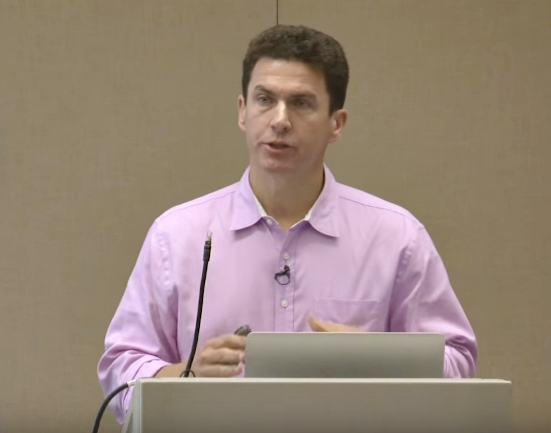Harvard studies show religion helps people treat others fairly

Religion helps people live in communities and treat others fairly, according to two Harvard University studies.
The results were published in the journal Behavioral and Brain Sciences and Nature magazine.
Harvard Professor of Human Evolutionary Biology Joseph Henrich, the author of the studies, examined the idea that through ethical and cultural norms, belief in God helped societies grow quickly, according to the Harvard Gazette.
Henrich's second study revealed that those who believe in God are more likely to treat other people fairly.
"What we want to understand is how humans were able to scale up from being relatively small societies to larger groups very quickly. One answer is that religion can act as a kind of social technology that helped humans scale up and build large, complex societies," Henrich said.
He said in the religion of very small societies, "there's no intertwining between religion and ethics or morality."
"There are supernatural agents, but they tend to be weak, they can be tricked, and they don't have any power over the afterlife. It's only over time that gods become increasingly concerned with human affairs. Gods that have control over the afterlife don't appear until relatively late in human history," he explained.
The concepts of the powerful gods, he said, started when "we have evolved some basic cognitive abilities that allow us to represent and understand these supernatural beings."
"Cultural evolution can then shape the details of what those gods care about and how powerful they are," he said.
Henrich added that as these gods became powerful, they were represented as more interested in the affairs of mankind and willing to punish people who did not follow social norms, the Harvard Gazette said.
When gods changed, the rituals also changed that kept people close to their faiths. He said Sunday services and prayer help in uniting larger communities of faith.
These tight-knit communities became able to surpass their neighbours through sharing of resources.
"The key element is that there is an in-group pro-sociality. You are willing to support other members of your group ... but that circle expands over time," he said.
Henrich and his colleagues held experiments in different parts of the world to know how belief in God influenced people's behaviour.
"We went to eight societies and tested Hindus, Christians, Buddhists, and others. What we did was give people a chance to essentially cheat at a game or to be biased toward themselves and their local communities over strangers from the same religious group," he explained.
He added, "Based on interviews done later, what we found was how omniscient and punishing people believe their god to be — predicted how much they would cheat, essentially."
Henrich said people who believed in more-punishing and more-knowing gods "cheated less in favor of themselves and their local groups over distance co-religionists, although everyone cheated in favor of themselves or in favor of their local group a little bit. What this means is they were allocating more coins to a distant co-religionist, and expanding the social sphere."











